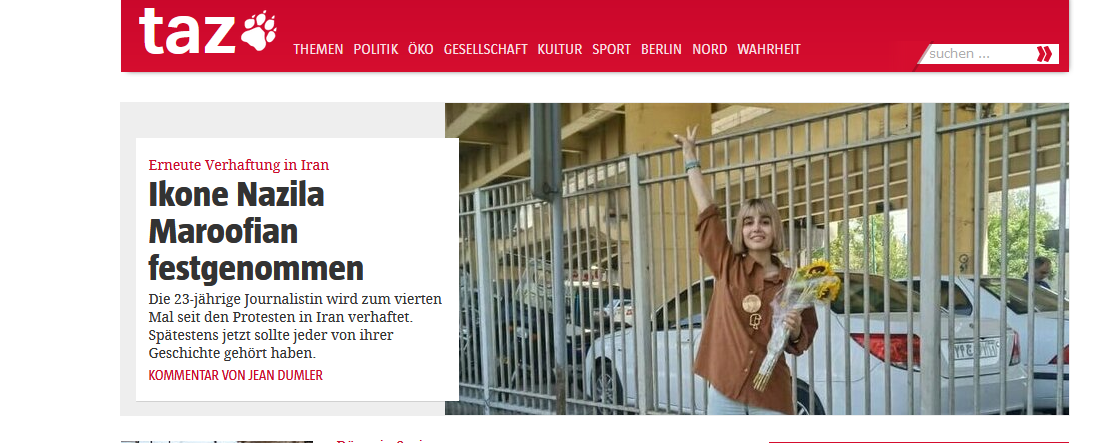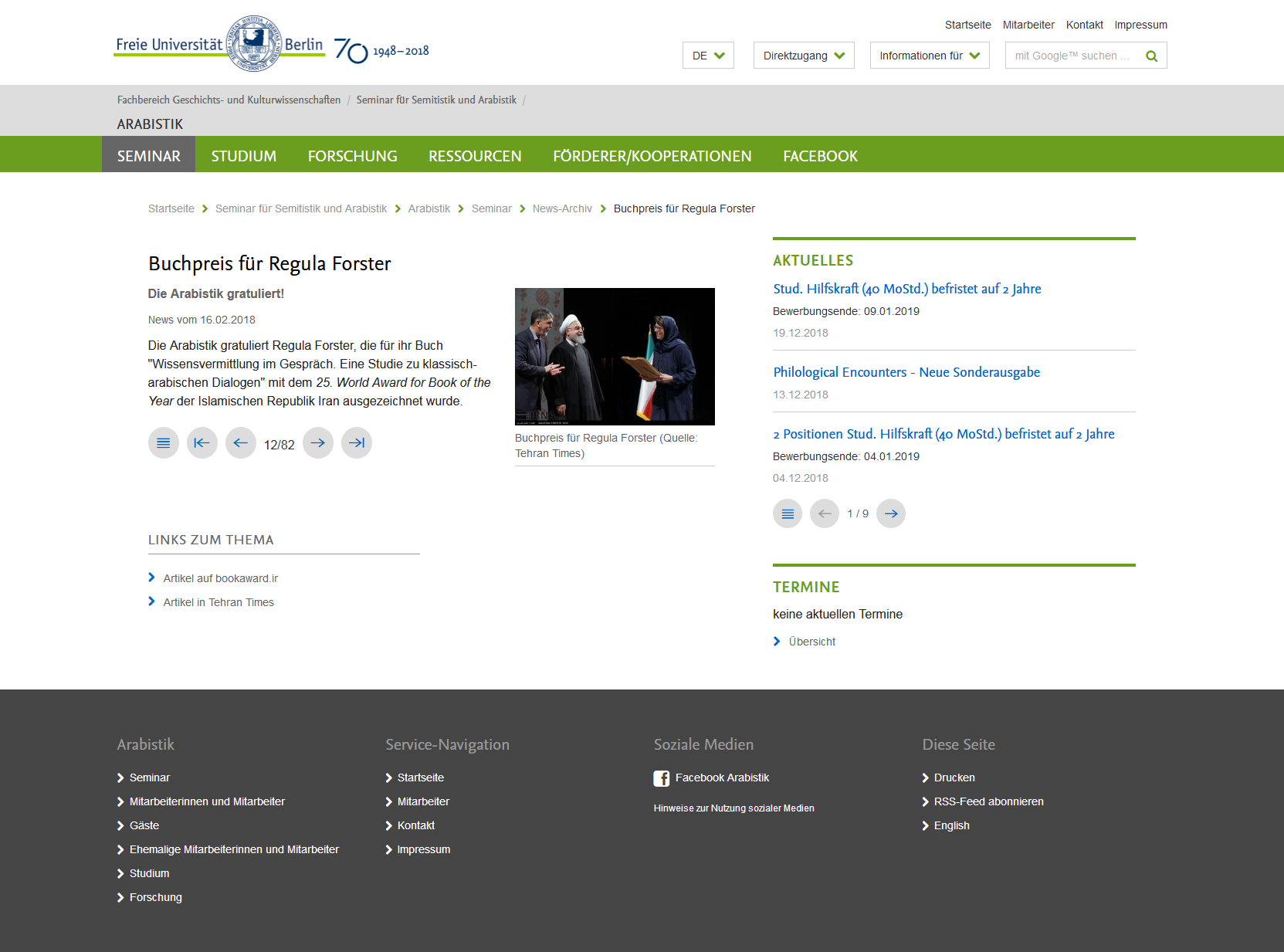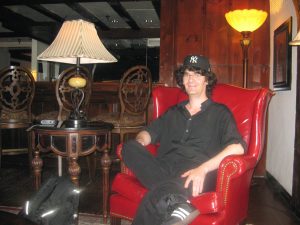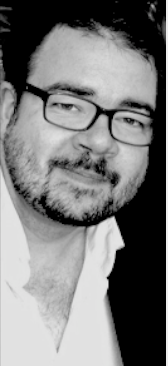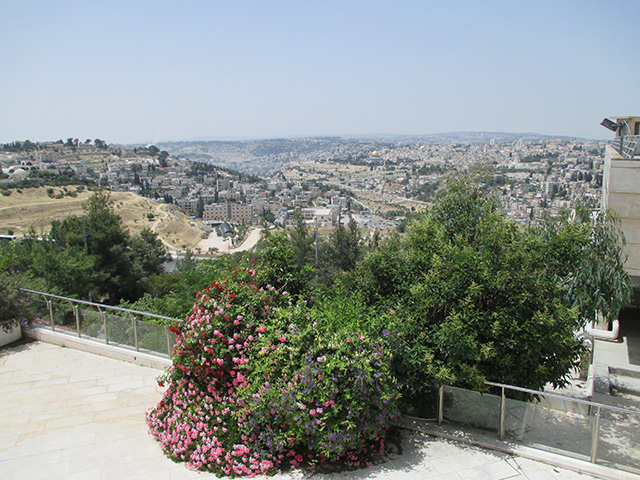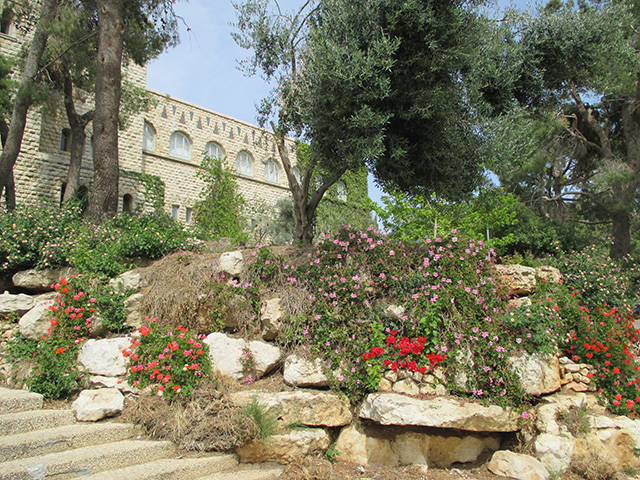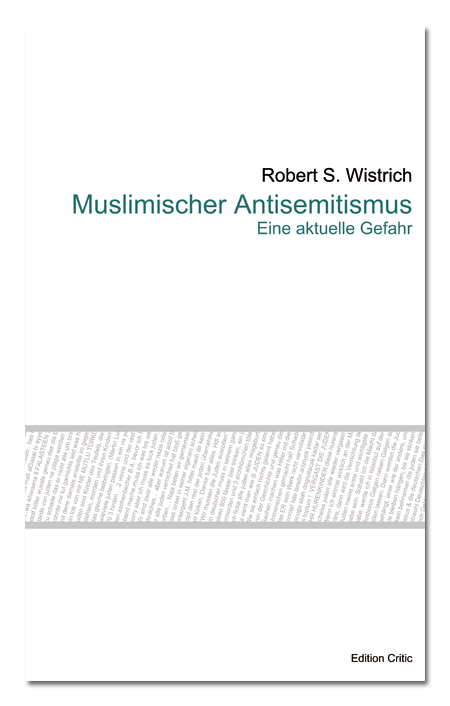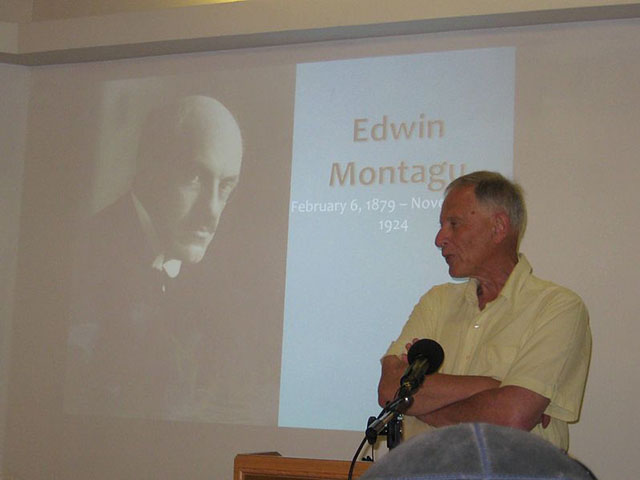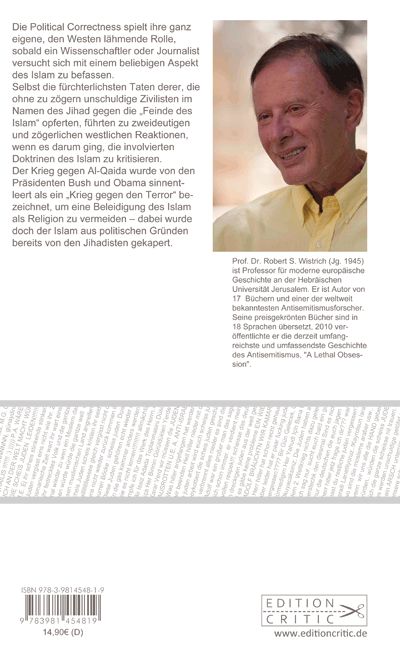By Dr. Clemens Heni, Director, The Berlin International Center for the Study of Antisemitism (BICSA), www.bicsa.org
Updated Nov 25, 2015: the WZB does not organize the event, they just „host“ it, we were told.
German-Iranian relations are on a new high after the Iran-Deal from July 2015. Calls for the destruction of Israel do not irritate German ministers Frank-Walter Steinmeier (Foreign Minister) or Sigmar Gabriel (Minister of Economy and Energy, as well as Vice-Chancellor and head of the Social Democratic Party, SPD). On November 26, the ifa (Institut für Auslandsbeziehungen or Institute for Foreign Relations) will held a symposium in Berlin on “The Future of European-Iranian Cultural Relations“.
Representative of the Green Party of Iran in Germany, Dr. Kazem Moussavi, known for his criticism of the Iranian regime, of Islamism and antisemitism, alerted us about that event. He mentions the involvement of Hamid Dabashi at that event, organized by the ifa (Institut für Auslandsbeziehungen) and hosted by the mainstream Berlin Social Science Center (WZB). The following gives you an inside view about that speaker. Dabashi is not just known as a supporter of former SS-man, anti-Zionist and Nobel Prize Laureate in Literature, Günter Grass (1927–2015). His hatred of the Jewish state goes much deeper and has Islamic theological implications. It is remarkable that this kind of hatred of Israel is now mainstream in Germany, again, and framed as the “future of European-Iranian cultural relations.”
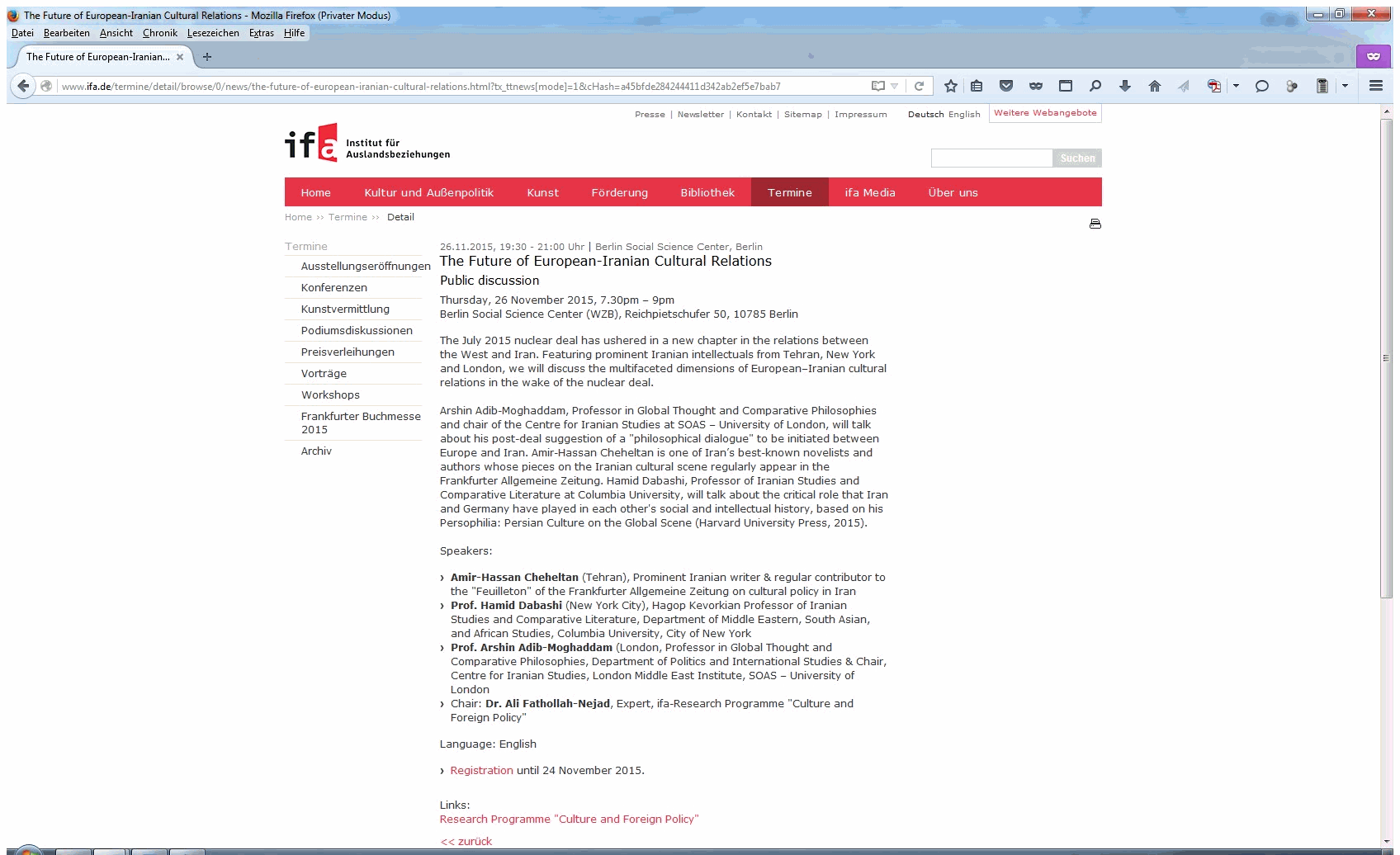
A[1] scholar from Columbia University in New York City, Hamid Dabashi, professor of Iranian Studies and Comparative Literature,[2] who was an old friend and colleague of Edward Said (1935–2003), supports German anti-Zionist Günter Grass. His statement is interesting because Dabashi is a scholarly voice against Israel, a man who is more sophisticated in his hatred of Israel than are others in the field. He is published by mainstream publishing houses, and employed by a famous university. In his support of Grass Dabashi wrote:
“Given the history that culminated in the Jewish Holocaust, Jews around the globe, including Israel, have every right to get agitated with a prominent German public intellectual lecturing them about violence. But Zionism is chiefly responsible for having wasted the moral authority of the Jewish Holocaust – through what Norman Finkelstein has aptly called ‘the Holocaust Industry’ – on establishing a racist apartheid state called ‘Israel’ – a colonial settlement as a haven for the victims of a whole history of European anti-Semitism, on the broken back of a people who had nothing to do with that travesty. With a leading German public intellectual openly criticising Israel, pointing to European hypocrisy, and blaming his own country for aiding and abetting in the aggressive militarisation of the Jewish state – a gushing wound is opened that implicates both Europe and the colonial settlement that in more than one sense is its own creation. In two specific terms, both as a haven for the victims of the Jewish Holocaust and as the legacy of European colonialism, Israel reflects back on its European pedigree.”[3]
Dabashi is not only endorsing hatred of Zionism and the state of Israel. He is also distorting history and equates the Holocaust with European colonialism; this is a trope, which does not hold scholarly standards. Instead of analyzing the faults and mistakes of the post-colonial worlds, Dabashi is portraying the entire non-Western world as a victim of imperialism, capitalism, and the United States, Christianity, and particular Israel. Arabs, who are part of the self-declared group of victims of history, collaborated with Nazi Germany; Dabashi ignores this. He also ignores the expulsion of some 650,000 Jews (or more) from Arab countries after 1948. Finally he ignores, for example, Arab slave trade since the medieval times and the racist view of blacks by Arabs[4] – such analysis would not fit in the pro-Muslim account of this Columbia professor.
The ignoring and rejection of the specificity of the Holocaust, the uniqueness of the Shoah, as well as the ignorance of the specific German condition and the history of antisemitism, as I analyzed it vis-à-vis the anti-Jewish motifs Ahasver, Mammon, and Moloch from the 17th centuries until today, is the ground from which Dabashi rumbles:
“It was Aimé Césaire who in his Discourse sur le colonialisme/
Discourse on Colonialism (1955) argued that the Jewish Holocaust was not an aberration in European history. Rather, Europeans actually perpetrated similar crimes against humanity on the colonised world at large. With German atrocities during the Holocaust, Europeans tasted a concentrated dose of the structural violence they had perpetrated upon the world at large. Colonialism and the Holocaust were thus the two sides of the same coin: the aggressive transmutation of defenceless human beings into instruments of power – into disposable ‘things’. Long before the Jewish Holocaust, the world Europeans had conquered and colonised was the testing ground of that barbaric violence they had termed the ‘civilising mission of the white man’.”[5]
In 2006, Dabashi edited a book on Palestinian films based on a film festival at Columbia University in 2003.[6] Said himself gave a lecture at this event.[7] In his introduction, Dabashi equated Israel with European colonialism, as well as with South African Apartheid:
“At the beginning of the twenty-first century, Israel has mutated into a military machine no longer even true to the original design of pioneering Zionists in the nineteenth century, who dreamt of an exclusively Jewish state. Today, Israel is a military camp completely given over to the imperial designs of the United States. Most cases of colonialism have ended in indignity: the French packed up and left Algeria, the Italians Libya, the British India, so did the Portuguese, the Spaniards, the Belgians, and the Dutch. Those such as the Afrikaners who did not leave and stayed put with a shameless insistence on apartheid were finally swept away by the force of history, and had to abandon their racist practices and concede to the will of the nation they had subjugated. But the Zionists remain. The fact that Jewish communities have lived in Palestine since time immemorial is as much an excuse for the formation of a Jewish State in Palestine as the equally historical presence of Muslim or Christian Palestinians is an excuse for the creation of an Islamic or Christian republic. Palestine belong to Palestinians – whether Jews, Christians, or Muslims.”[8]
This is the same antisemitic argumentation we know from his support for Grass in 2012. In 2008, Dabashi published a book on Islamic Liberation Theology. Resisting the Empire.[9] Dabashi has an Iranian-American background and is pleading for a renewal of Islamic thinking. He opposes Islamism as we know it, and says that Islamism started in the early 19th century and came to end (unhappily) with the Islamic Revolution in Iran 1979.[10] The “Islamic Revolution” is a “failure”[11] to him; the binary opposition of West versus Islam no longer exists in his view. Therefore, Muslims and all others need to look for another solution for how to fight the “empire:”
“Today Muslims, as do millions of other people around the globe who do not confess their faith but share their fate, face an incessantly globalized empire whose amorphous shape has not yet allowed for an articulated response. The task ahead of us, Muslim or otherwise, is to articulate and historicize the contours of that response.”[12]
For him, like Giorgio Agamben (and other followers of Michel Foucault),[13] the 9/11-attacks and the US response are equally “terrorizing,” a term he uses for the “US military campaigns” after 9/11.[14] Dabashi admits that the 9/11 attacks were “barbaric and senseless act of violence.”[15] Dabashi, though, sees a potential “revolutionary” element in groups like Hezballah or Hamas.[16] He fears, though, that they ‘just’ aim at Israel, while he envisages a worldwide revolution based on the overcoming of the “empire,” read: American hegemony. He was a very close ally of Edward Said and tries to write “Orientalism” in the “post-9/11-syndrome”, or “Post-Orientalism.”[17]
It is worth quoting to get an inside view what Dabashi thinks about our time and a ‘Muslim awakening:’
“I propose that resisting a US-inspired globalized empire requires a radical thinking of the very notion of ideology – whether in its secular or theological variations. Neither anti-colonial nationalism, nor Soviet-style socialism, nor indeed nativist grassroots ideologies such as Islamic ideology of the last 200 years in Muslim countries or its Christian version the liberation theology of the last quarter of the century in Latin America is capable of mobilizing and sustaining enough revolutionary synergy to resist this predatory empire.”[18]
As a more sophisticated version, Dabashi promotes a non-essentialist version of a ‘revolutionary movement.’ Although a Muslim himself, seeking for Islamic rule, he seems to be relatively open to other anti-American coalition partners, too. His postmodern idea of the self is not based on an Islamist version of ideology we know from sharia-style Islamists like al-Qaradawi. Dabashi is against sharia law and strict rules: instead, he wants to initiate a world-wide movement aiming at the US and Israel (and the West, like the UK, although for him they are in fact already “dead,”), without being stuck in the exclusiveness of traditional Islamist wings of the political spectrum. Dabashi’s nice looking ideology propagates violence in words opposite to death:
“In terms of any liberation theology (Christian or Islamic), no such resistance can any longer be in terms of a singular ideology embedded in a medieval theology, or an ideologically updated version of it to resist a center-based ‘Western’ empire, or else through spectacular acts of senseless and iconic violence. Precisely because the nature and disposition of this failing empire, like the operation of the capital it wants to control, is amorphous, then resistance to it must be in terms of ideological guerrilla operations – light weight, regional, cross-cultural, non-essentialist, and if it be in theological terms then in terms that account for the existence of alterity in the world, that is to say of veritable theological incongruities – in principal a radically counter-authentic notion of ideologies, revolutions, and revolutionaries. The ethics of this theology is other-based, not self-based, Levinasian rather than Husserlian – its ethics, in Levinas’ words, is ‘otherwise than being or beyond essence.’ It does not authenticate itself. It embraces its own otherwise. The worst revolutionaries of this generation would be the authentic revolutionaries – the best ones are the syncretic, those who think, in Gianni Vattimo’s words, with an ‘il pensiero debole’ – with weak thoughts, and always breaking through the colonially manufactured boundaries of dividing thoughts and sentiments to rule people and their destinies.”[19]
Such ‘ethics’ include the murder of Jews, if we take into account the support of Hany Abu Assad’s film in 2005, Paradise Now. This film was in the making while Dabashi was working on his book on the film festival about Palestinian films. German and Austrian TV program Kulturzeit (culture time), made by mainstream TV journalist Gert Scobel, a Christian theologian, propagated the film. Scobel met with Abu Assad and they had quite a “funny time” when talking about suicide bombers in the making – Abu Assad says in an interview with Scobel that the “reality” of making the film “was even funnier” as seen in the highly pro-suicide-bombing film. I criticized the film and his German/Austrian fans in 2005.[20]
Applying Levinas or antisemite Gianni Vattimo and philosophical terms of revolution and non authenticity, as Dabashi does, facing the other in oneself is just the postmodern version of highly authentic Jew-hatred and antisemitism, aiming at the Jewish state of Israel. This becomes crystal clear in Dabashi’s book in 2008:
“The principal ally of this Christian empire is an avowedly Jewish state called Israel. The Christian empire and the Jewish state have collectively decided to call their mutual nemesis ‘Islamism.’ There is an Islamic republic in the immediate vicinity of this Jewish state that is both its mirror image in religious fanaticism and the locus classicus of this apparition they call Islamism.”[21]
Dabashi pretends to be anti-Ahmadinejad, and perhaps he is in a way indeed against him. However, he portrays the Iranian President as just another victim of the United States.[22]
Dabashi’s anti-Zionism is remarkable: well-educated, he implicitly equates Holocaust denial with Holocaust remembrance, the killing of homosexuals with giving shelter to Muslim and Arab homosexuals, the killing of opposition politicians and activists with the holding of uncounted rallies in the streets of Tel Aviv and Jerusalem and throughout Israel. Democracy and change of government, separation of executive, judicial, and legislative power in Israel therefore is the same as the wali al-faqih in Iran.[23] This post-modern or ‘Islamic liberation theological’ thinking is beyond reality but fashionable. Grass also equates Iran with Israel, seeing Israel as the bigger and real threat to world peace. Therefore, Dabashi is a philosophical and political ally of Grass, and vice versa, regardless of the fact that social democrat Grass probably won’t share the world wide revolutionary movement Dabashi aims to initiate. But hatred of Jews in Israel is a common ground to start collaborating.
There is a highly Islamic way of thinking in Dabashi, based on Christian and Islamic ideas of global reconciliation and redemption.
“To reach for the enduring foundations of this liberation theology, the current condition of Islam as a moral and intellectual heritage must be linked to its premodern cosmopolitan disposition, which from the rise of the Abbasids in the middle of the eighth century to the demise of the Ottomans early in the twentieth has been the single most abiding characteristics of Muslim societies. Definitive to that polyvocal cosmopolitanism is a catholicity of learning, a multiplicity of legitimate discourses of authority that precisely in their multifaceted and contradictory dispositions have constituted the syncretic disposition of Islamic polyvocal culture. Rooted in that cosmopolitanism, Islam in its globalized disposition will have no discursive or institutional fears to be creatively conversant with a variety of (so-called sacred or secular, modern or premodern) cultures and disposition.”[24]
Dabashi is arguing in favor of nice-looking ‘cosmopolitan’ revolution, including cultural diversity – and likewise genocidal threats against the state of Israel, embedded in cotton balls. He is following the concept of worldwide revolution on which Khomeini built up Iranian, Islamist, anti-Israel and anti-Western agitation, including the collaboration with non-Muslim forces. “Polyvocal cosmopolitanism” sounds great, though the result is anti-Jewish action against Israel. In the name of religion and cosmopolitanism, hatred of Jews as Zionists prevails:
“The collective impact of all these developments will ultimately result in the active and creative integration of Islam and Muslim communities into global, transnational, liberation movements that will collectively resist the predatory US (or any other) empire. Beyond the classical mode of Islamism as experienced in the nineteenth and twentieth centuries, and beyond spectacular acts of senseless violence, there must be a mode of liberation theology that, closer to the roots of its metaphysics of salvation, is a theodicy that will have to embrace the extended shadows of the faith and thus engendering a mode of cultural cosmopolitanism that is the only way to combat the Christian empire and the Jewish state by a mode of theology that reestablishes its roots in the moral authority of Judaism, Christianity and Islam alike.”[25]
This is nothing but the “cultural cosmopolitan” way to endorse violence against Zionists. Dabashi is maybe a particularly interesting supporter of Nobel Prize Laureate Günter Grass. Both seek to destabilize and then destroy the Jewish state of Israel, Grass implicitly, Dabashi completely shamelessly. His open words of incitement to destroy Israel have been distributed by a leading publishing house, Routledge, and not a minor, hardcore left-wing extremist one like Verso, where his other book about embracing Arab violence against Jews in Israel was published two years earlier.
Now, a leading academic and political institution in Germany, the ifa (Institute for Foreign Affairs) organizes – and the WZB (Wissenschaftszentrum Berlin) or Berlin Social Science Center is the host -, an event with someone like Hamid Dabashi and gives him a podium. This fits perfectly in the pro-Iranian politics of the German government.
Inviting a person like Dabashi, though, indicates an endorsement of modern Jew-hatred which is the defamation of the Jewish state of Israel. Is this Germany, again?
[1] This article is a chapter in Clemens Heni (2013): Antisemitism: A Specific Phenomenon. Holocaust Trivialization – Islamism – Post-colonial and Cosmopolitan anti-Zionism, 406–415.
[2] http://www.columbia.edu/cu/mesaas/faculty/directory/dabashi.html (visited July 5, 2012).
[3] Hamid Dabashi (2012): “Günter Grass, Israel and the crime of poetry. In his poem, Nobel laureate Günter Grass criticises Israel and condemns German arms sales to the Jewish state,” April 10, 2012, http://www.aljazeera.com/indepth/
opinion/2012/04/2012498535088416.html (visited May 6, 2012).
[4] See N’Diaye, Tidiane (2010): Der verschleierte Völkermord. Die Geschichte des muslimischen Sklavenhandels in Afrika, Reinbek: Rowohlt (first published 2008 in French).
[5] Dabashi 2012.
[6] Hamid Dabashi (ed.) (2006): Dreams of a Nation, London/New York: Verso.
[7] Edward Said (2006): “Preface,” in: Dabashi (ed.), 1–5. This is the “text of the keynote speech that Edward Said delivered at the opening night of our Dreams of a Nation: A Palestinian Film Festival, on 24 January 2003 at the Roome Arledge Cinema, Lerner Hall, Columbia University, New York,” ibid., 1.
[8] Hamid Dabashi (2006a): “Introduction,” in: Dabashi (ed.), 7–22, 10. Another highly troubling thing is the involvement of a leading American University (Ivy League), Columbia University. Dabashi is well aware of the importance of such support and acknowledges it. While high-profile scholarship against antisemitism like at YIISA, Yale University, was shut down by Yale University, antisemitic propaganda against the Jewish State of Israel is not just tolerated or accepted, it is even supported. Dabashi expresses his gratitude: “I thank all my distinguished colleagues at Columbia University who defied the atmosphere of fear and intimidation generated against us and joined our initial conference that we had organized in conjunction with the festival. Lila Abu-Lughod, Coco Fusco, Stathis Gourgouris, Joseph Massad, Rosalind Morris, Richard Pena, James Schamus, and Gayatri Spivak were exemplary models of courage in lending our festival the authority of their good names and being instrumental in making our event possible. We will never forget their noble stand for the indomitable cause of justice under very hostile circumstances. Under the terrorizing condition of post-9/11 New York – where street hugs, neo-con charlatans and hazardous millionaires have had a rendezvous with power – we were all put to test, and precious few of us passed the historical trial. I am particularly grateful to my dear friend and distinguished colleague Jonathan Cole, then our courageous Provost, for having withstood extraordinary pressure to safeguard our academic freedom. His untimely departure from that crucial post was tragic, and he is sorely missed at Columbia’s helm. (…) As in many other instances, the late Edward W. Said (1935–2003) was the principal inspiration behind the idea of this film festival and the project it commenced,” Hamid Dabashi (2006b): “Acknowledgments,” in: Dabashi (ed.), 209–213, 211.
[9] Hamid Dabashi (2008): Islamic Liberation Theology. Resisting the empire, London/New York: Routledge.
[10] Dabashi 2008, 3.
[11] Dabashi 2008, 3.
[12] Dabashi 2008, 56.
[13] He refers positively to Agamben and Foucault, Dabashi 2008.
[14] Dabashi 2008, 1.
[15] Dabashi 2008, 9.
[16] Dabashi 2008, 15.
[17] Hamid Dabashi (2009): Post-Orientalism. Knowledge and Power in Time of Terror, New Brunswick: Transaction Publishers, xi. The book is dedicated “To the Memory of Edward Said,” “Cherished Colleague, Fallen Friend, Enduring Comrade.” Dabashi is looking for a “new organic intellectual,” ibid., 231, which is an abhorrent use of the term intellectual, taking into account the huge amount of bigotry and hatred towards America, the West, and particularly Israel, which can be found in the writing of Dabashi, for example in his book in support of the “Green Revolution” in Iran 2009. He is thrilled by overthrowing the Islamic Republic and wants the post-Islamist situation to be a source for anti-Zionist action, too: Hamid Dabashi (2010): The Green Revolution. Edited with an introduction by Navid Nizadfar, New Brunswick: Transaction Publishers, 153–159. Nizadfar is a pseudonym.
[18] Dabashi 2008, 13.
[19] Dabashi 2008, 14–15.
[20] Clemens Heni (2005): “‘Und glaub mir, die Wirklichkeit ist noch viel lustiger’: Gert Scobel und Hany Abu-Assad verstehen sich,” February 18, 2005, http:
//www.hagalil.com/archiv/2005/02/scobel.htm (visited May 6, 2012).
[21] Dabashi 2008, 9.
[22] “The more fiercely Osama Bin Laden, al-Qaeda, the Taliban, and Afghanistan were depicted as principal targets of the War on Terror, the shorter the historical memory necessary to sustain the delusion. Two years after Bin Laden and Afghanistan came Saddam Hussein and Iraq, and after another two years Ahmadinejad and Iran. Fabricating successive enemies thus became the principal modus operandi of the empire: one to two wars per presidential election,” Hamid Dabashi (2011): Brown Skin, White Masks, London/Black Point/Winnipeg: Pluto Press and Fernwood Press, 68.
[23] Robert Wistrich takes this principle as an example to draw a line from Platonic philosophy to Iranian style Islamist jurisprudence, Robert S. Wistrich (2010): A Lethal Obsession. Antisemitism from Antiquity to the Global Jihad, New York: Random House, 880.
[24] Dabashi 2008, 265.
[25] Dabashi 2008, 265.



